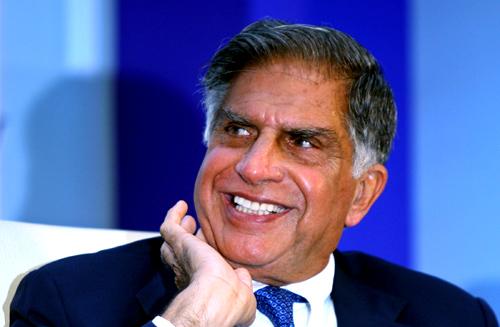Photographs: Reuters.
Once pioneers in civil aviation, the Tata group is unlikely to get into the sector because of "destructive competition", its outgoing Chairman Ratan Tata said.
Recalling the group's proposal for a tie up with Singapore International Airlines (SIA) for a domestic carrier in India in the mid-1990s, the Tata patriarch pointed out, "it is a different sector today than it was at that time.
"It is somewhat like telecom. It is proliferated by many operators some of them in financial trouble. I would hesitate to go into the sector today in the sense that the chances are that you would have a great deal of competition which would beunhealthy competition.
"Asked if he was worried about "cut throat" competition, Tata responded in the negative but went on to say, "cut throat competition which is done to keep you out is destructive competition.
"Overseas people go bankrupt or companies go bankrupt. Here they never do--they continue to be sick and still operate. Then they are operating to kill you.
"Was the story that someone had asked him to pay a Rs 15 crore (Rs 150 million) bribe to clear the Tata-SIA deal correct, the Tata chairman was asked during an interview with PTI.
He replied that the story was correct but it was not the then Civil Aviation Minister who had asked him directly to pay.It was a businessman who "told me why don't you pay. This is what the minister wants," he said.What was his response to the businessman? "I told him that you don't understand.
That is not how we do business. All he said to me was, 'look if you want theairline this is what you must pay. You know the minister wants that--Rs 15 crore'."
Tata recalled that after taking over as Chairman in 1991, he had drawn up a strategic plan in which he had seen aerospace and defence a new area for the private sector to enter in a big way.
"For several years, the fact that we had sanctions of various sorts on us, gave us no access to technology and that in itself was a challenge."But that challenge was never thrown to the private sector which was a "bit of a disappointment to me", he said.
Vested interests in the public sector and government laboratories do not not give these areas to the private sector. Therefore, while these areas have been opened up, the private sector's involvement is still very limited, he said.


article